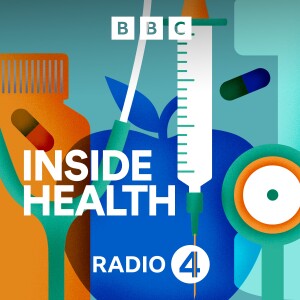
Meningitis B, Hormones and depression, Statins, Unexpected heart attacks
 2015-09-01
2015-09-01
Download
Right click and do "save link as"
From this week all UK babies will be vaccinated against that most feared disease, meningitis B, the first country in the world to take this step. But the decision to include Men B in the national immunisation programme has come too late for parents, Freya and Ross. A year ago their baby daughter, Harmonie, nearly died after contracting the infection. Her arms and legs as well as the tip of her nose had to be amputated because of the resulting sepsis. Sue Davie, Chief Executive of Meningitis Now tells Mark that the vaccine is great news and will save many lives. But she hopes in the future that it will be offered to older babies and young children, as well as another at risk group, adolescents.
Mental health problems have long been linked to fluctuating hormone levels, at times of menstruation, childbirth and menopause. Dr Michael Craig who runs the Female Hormone Clinic at the Maudsley Hospital in London discusses the role of hormone replacement treatments.
Statins are the most commonly prescribed medicines in the UK. They work to lower the level of cholesterol in your blood. There's been considerable debate about when doctors should start prescribing statins and NICE, the National Institute for Health and Care Excellence, had been keen for GPs to be paid to put more patients on the cholesterol-reducing drugs. Dr Margaret McCartney outlines the controversy and NICE Deputy Chief Executive, Professor Gillian Leng, tells Mark that the health advisory body has listened to concerns and why their new statins targets are now to be tested in the field.
Young, healthy, sporty people don't get heart attacks. Except when they do. Dr Stuart Miller, Clinical Director of Sport and Exercise Medicine at the University of Bath admits that he was shocked when he had a heart attack, even though he cycles, swims and eats a healthy diet. Sanjay Sharma is professor of cardiology at St George's Hospital in London and he tells Mark how common unexpected heart attacks are.
Producer: Fiona Hill.
view more
More Episodes
Blood pressure, Palm oil
 2016-02-02
2016-02-02
 14
14
 2016-02-02
2016-02-02
 14
14
Health and Exercise Inside Health Special
 2016-01-12
2016-01-12
 2
2
 2016-01-12
2016-01-12
 2
2
Gestational diabetes, Low-carb diets, Needle pain
 2015-07-07
2015-07-07
 2
2
 2015-07-07
2015-07-07
 2
2
01234567810111213141516171819
Create your
podcast in
minutes
- Full-featured podcast site
- Unlimited storage and bandwidth
- Comprehensive podcast stats
- Distribute to Apple Podcasts, Spotify, and more
- Make money with your podcast
It is Free
- Privacy Policy
- Cookie Policy
- Terms of Use
- Consent Preferences
- Copyright © 2015-2024 Podbean.com


